Are you feeling a bit overwhelmed at the thought of drafting a compliance certification letter for your board of directors? Don't worry, you're not alone in navigating the intricacies of legal documentation! This guide will break down the essential elements you need to include, ensuring your letter communicates the necessary compliance clearly and effectively. Ready to streamline your process and ensure everything is in order? Let's dive in!
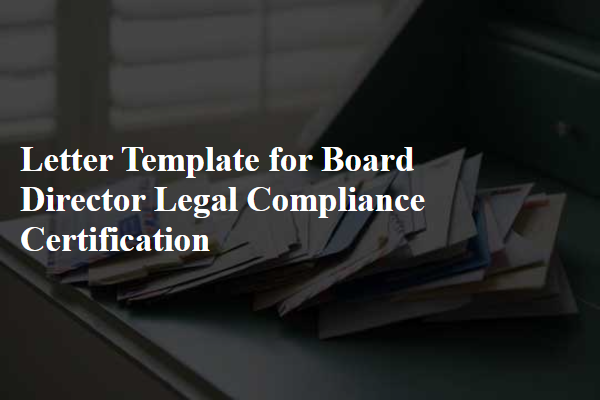
Clear statement of compliance
The board director legal compliance certification requires a formal declaration regarding adherence to applicable laws, regulations, and corporate governance standards. This certification typically should articulate that the organization operates within statutory requirements, such as the Sarbanes-Oxley Act for public corporations or local governance codes for private entities. Board directors must confirm that all financial disclosures are accurate, and risk management policies are appropriately implemented. Each signatory should represent that no legal violations or pending litigation undermine the integrity of the organization, ensuring stakeholders maintain confidence in company leadership.
Reference to relevant laws and regulations
Legal compliance certification for board directors requires adherence to several key financial and corporate governance regulations. The Sarbanes-Oxley Act of 2002 mandates transparency in financial reporting for publicly traded companies, ensuring that companies adhere to strict accounting practices and ethical standards. Additionally, the Dodd-Frank Wall Street Reform and Consumer Protection Act, enacted in 2010, includes provisions that promote accountability and transparency in the financial system, affecting board oversight responsibilities. Compliance with the Foreign Corrupt Practices Act is crucial, especially regarding anti-bribery provisions and accurate record-keeping practices. Board directors must also ensure adherence to relevant state laws, such as Delaware General Corporation Law, which governs corporate structure and fiduciary duties. Regular training and awareness of evolving regulations empower directors to uphold legal responsibilities effectively and reinforce corporate integrity.
Confirmation of internal policy adherence
The board director's legal compliance certification serves as a formal acknowledgment of adherence to internal policies and regulations. This document outlines specific policies established by the organization, detailing procedures for compliance with local laws, such as the Sarbanes-Oxley Act for financial practices or the General Data Protection Regulation (GDPR) for data privacy. It may reference compliance training programs implemented within the company, assessment schedules to evaluate policy adherence, and reporting mechanisms for potential violations. The certification emphasizes the importance of accountability and governance, assuring stakeholders that the organization maintains ethical standards and regulatory compliance to mitigate risk and protect company interests.
Statement of due diligence efforts
The Statement of Due Diligence Efforts outlines the rigorous compliance procedures undertaken by the board of directors at the Corporate Governance Institute based in New York City, ensuring adherence to federal regulations issued by the Securities and Exchange Commission (SEC) and relevant state laws. This documentation reflects a commitment to ethical business practices, achieved through a series of comprehensive audits conducted quarterly, which assess compliance with policies, including the Sarbanes-Oxley Act requirements. Additionally, a robust training program has been implemented for all employees, focusing on legal obligations and ethical responsibilities. Regular consultations with legal experts, specifically in corporate law, enhance the board's understanding of evolving regulations. The continuous monitoring systems in place, combined with transparent reporting practices, exemplify the dedication to safeguarding the integrity of the organization. Streamlined feedback mechanisms allow stakeholders to voice concerns, further reinforcing the commitment to ethical governance.
Signature and date fields
A board director's legal compliance certification typically requires a structured format to confirm adherence to relevant laws and regulations. Directors should sign and date the document to validate its authenticity. For example, the signature field may contain the director's name and title, while the date field specifies the certification's completion day. Essential elements include the name of the organization, the compliance criteria being certified, and any applicable legal references, ensuring clarity on the accountability and responsibilities the director undertakes.

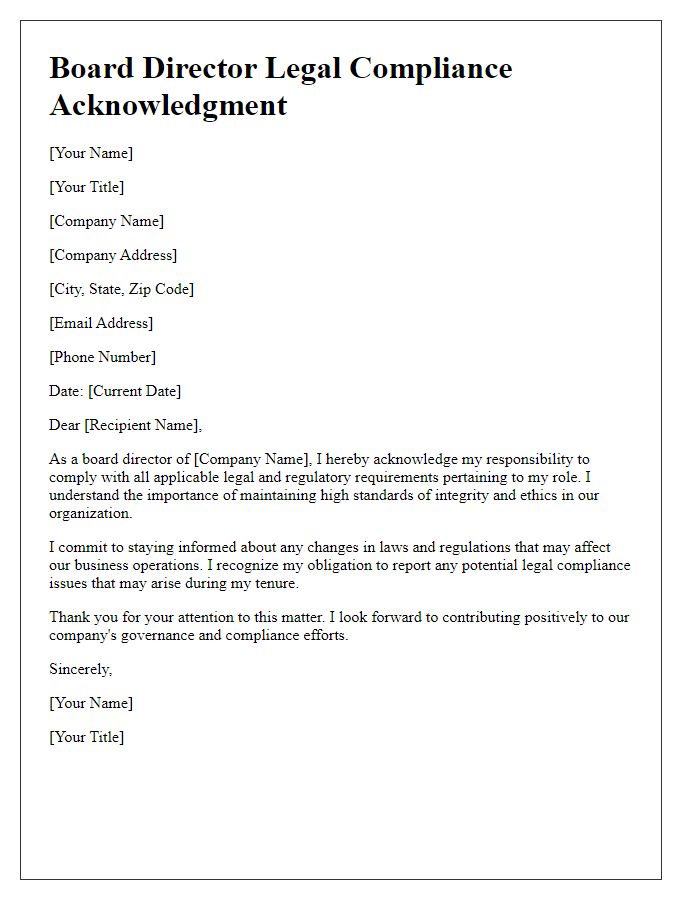
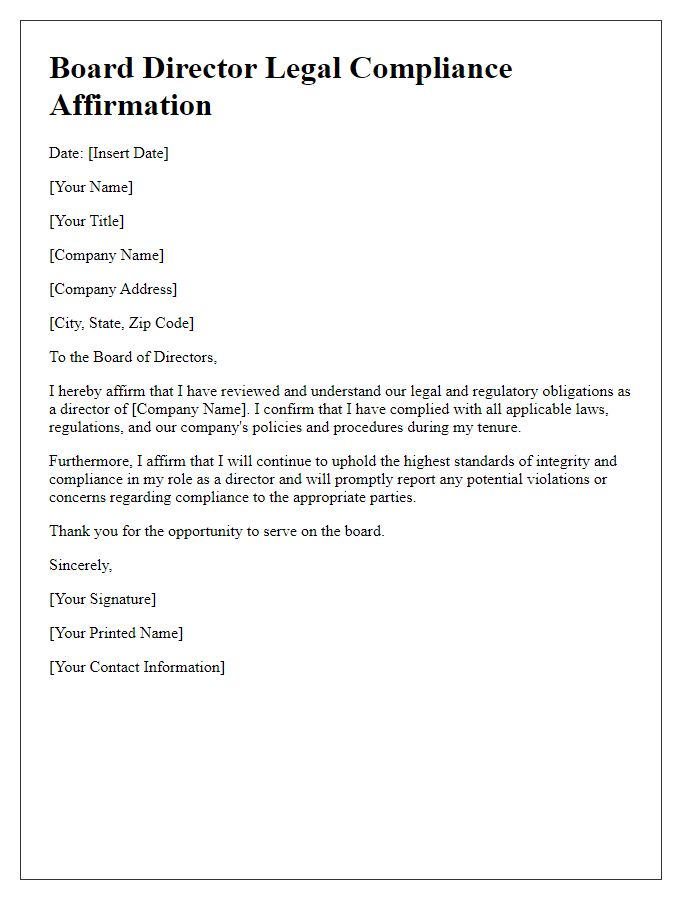

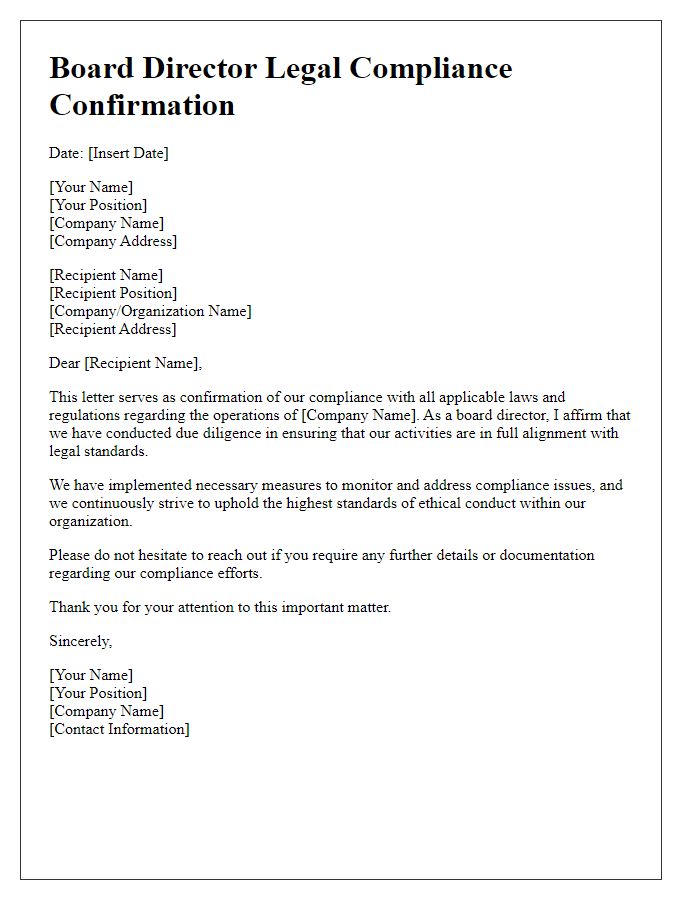
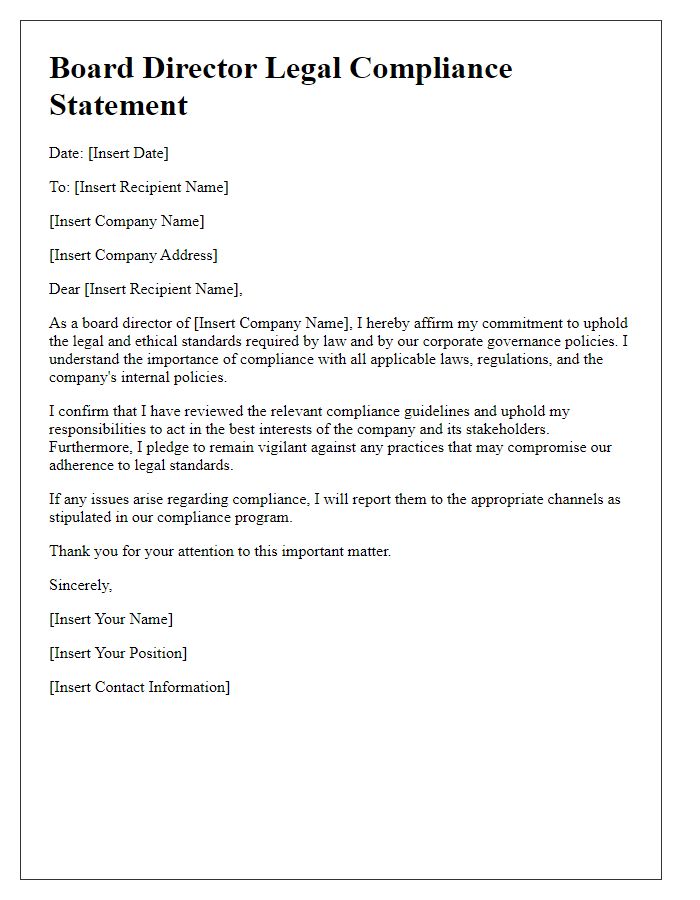
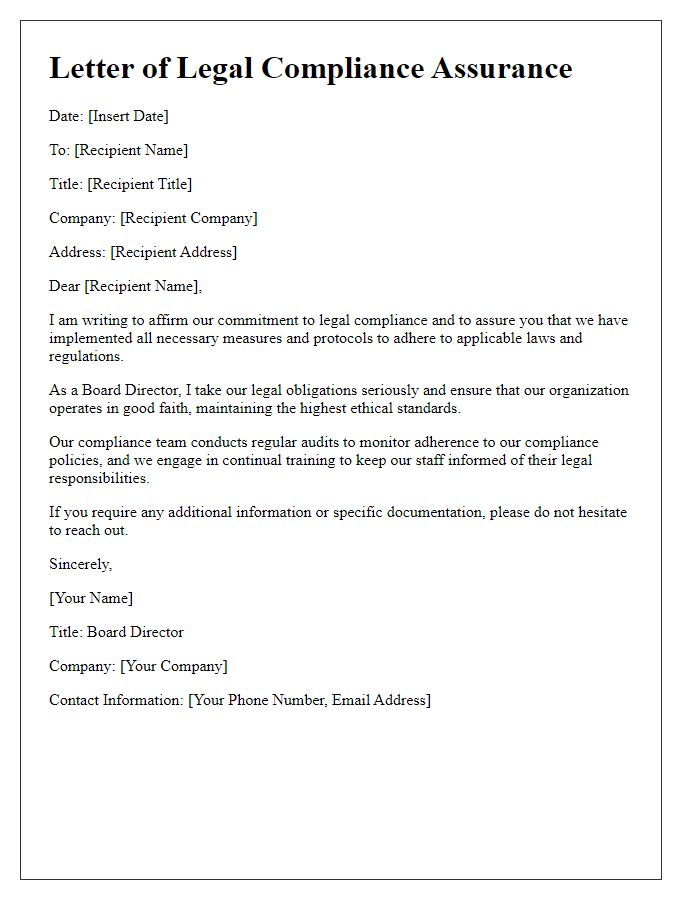
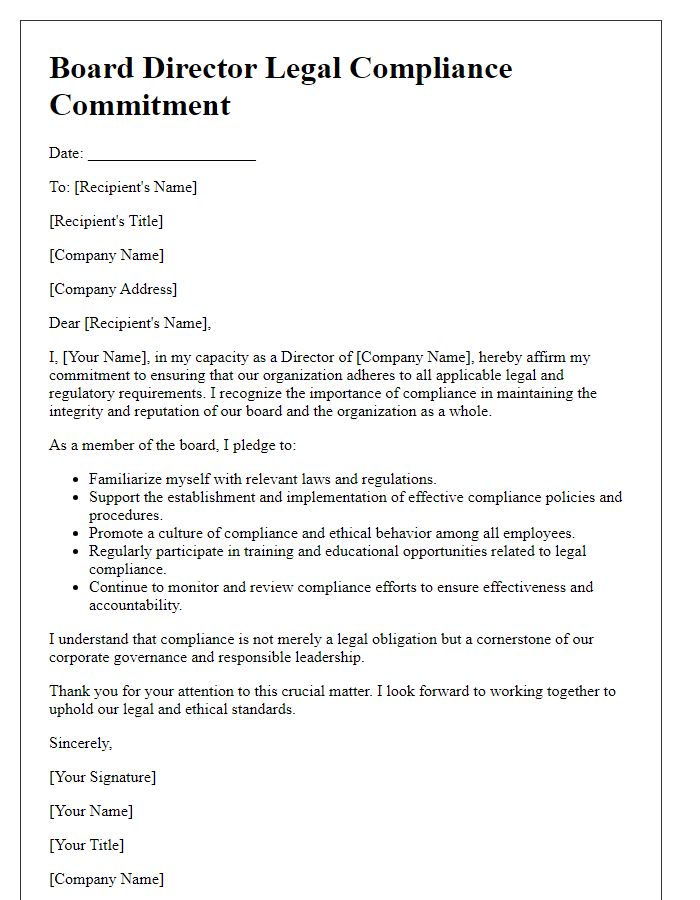
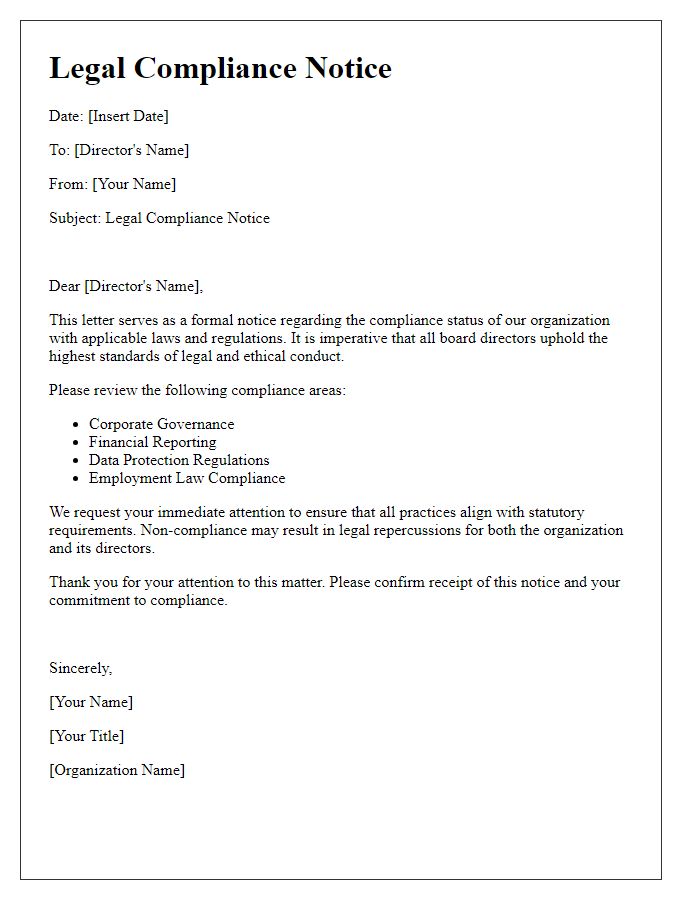
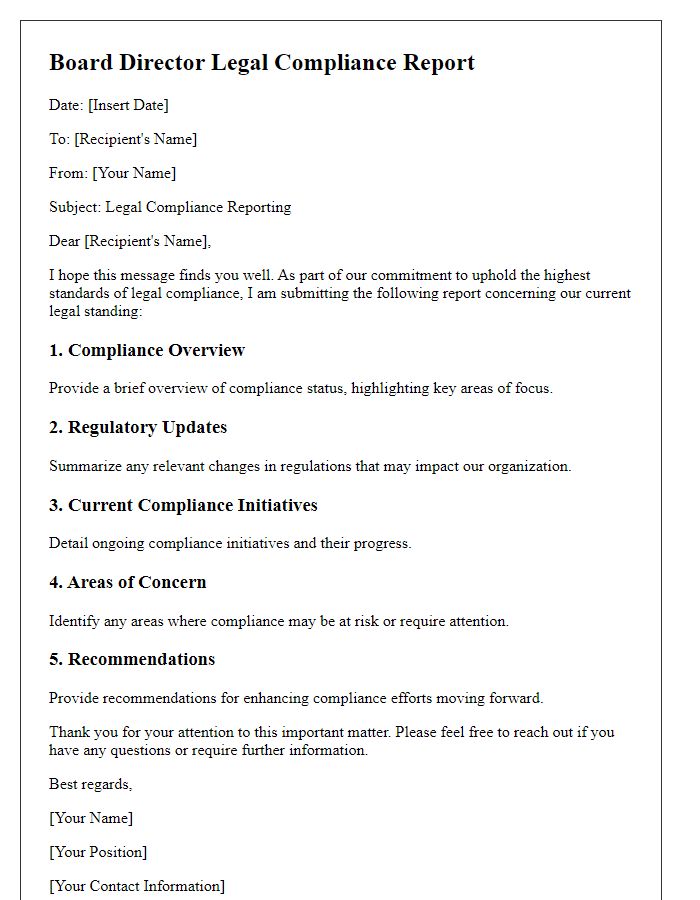
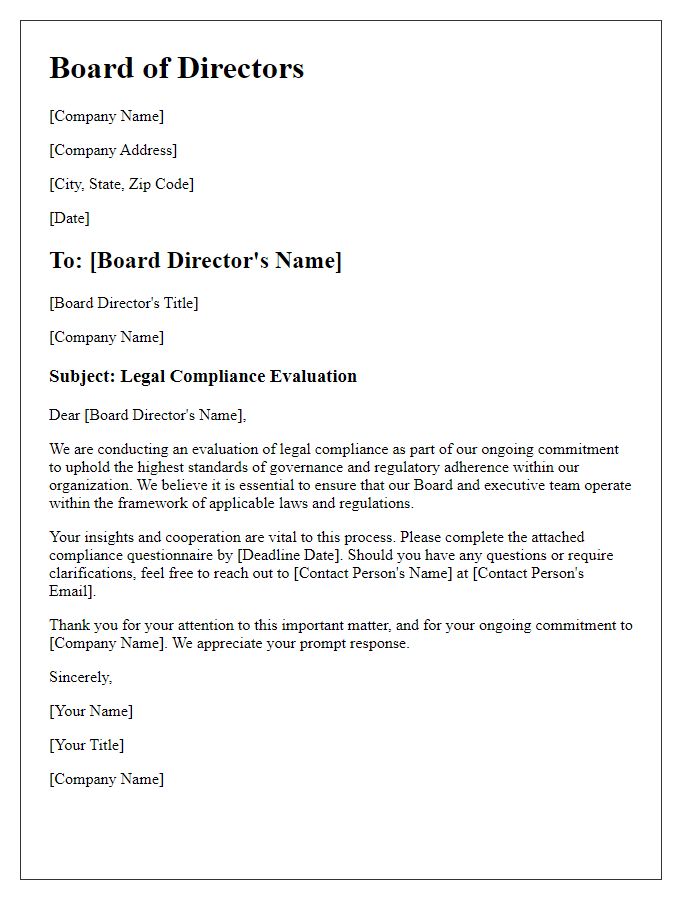


Comments